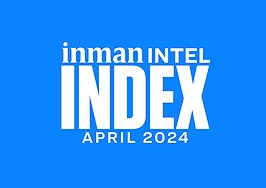Jay Thompson is a former brokerage owner who spent over six years working for Zillow Group. He retired in August 2018 but can’t seem to leave the real estate industry behind. His weekly Inman column publishes every Wednesday.
Another “bombshell” just dropped on the real estate industry.
Was it a thermonuclear detonation of proportions never seen before, or more like the firecracker that, as a kid, I put in anthills to “blow them up”?
It depends on who you believe.
Inman’s initial report, “DOJ sues NAR, alleges illegal restraints on Realtor competition,” outlines the issues at hand. What’s frustrating is the apparent fact that many who have leaped into discussions on this haven’t bothered to read past the headline or follow any embedded links for additional info and insight. There is a handy little “further reading” list at the end of this column. Please click those links, and read past the headlines while thinking critically.
To summarize: The Department of Justice (DOJ) filed a lawsuit against the National Association of Realtors. Many are missing a critical point: A settlement has already been filed, and the wheels are turning on processing that through the sometimes convoluted rule change and court processes.
Assuming this settlement is approved, which appears to be a pretty safe assumption, this will not become some arduous, protracted, expensive legal slugfest.
The DOJ wants to see more transparency for consumers concerning real estate commissions. Ostensibly this might lead to some commission compression and consumer visibility into the options they have when choosing which real estate brokerage or agent to work with. What no one can possibly know is if these proposed rules will actually compress commissions.
Could there be “unintended consequences” of this lawsuit and settlement? Of course, there could be. But prognosticating on any potential consequences is likely an exercise in futility and frustration. Of course, that hasn’t stopped the “but what about’s” from rolling forward.
Here are the four proposed changes, straight from the proposed final judgment. “Proposed” is an important word; this is still subject to approval from the NAR board of directors and the court.
NAR and its Member Boards must not adopt, maintain, or enforce any Rule, or enter into or enforce any Agreement or practice, that directly or indirectly:
- prohibits, discourages, or recommends against an MLS or MLS Participant publishing or displaying to consumers any MLS database field specifying the compensation offered to other MLS Participants;
- permits or requires MLS Participants, including buyer Brokers, to represent or suggest that their services are free or available to a Client at no cost to the client;
- permits or enables MLS Participants to filter, suppress, hide, or not display or distribute MLS listings based on the level of compensation offered to the buyer Broker or the name of the brokerage or agent; or
- prohibits, discourages, or recommends against the eligibility of any licensed real estate agent or agent of a Broker, from accessing, with seller approval, the lockboxes of those properties listed on an MLS.
For the record, I am not an attorney. I do not hold a doctorate in jurisprudence degree from any higher learning institution, including Facebook University. I took a few business law classes in college and grad school, have 16-plus years of real estate experience and 60 years of life experience. (Having recently turned 60, I still find that last point troubling to make.)
Given those disclosures, here’s my take in everyday English on these four proposals.
1. NAR and MLSs can’t hide commission rates
In fact, according to NAR’s FAQs, “In accordance with the MLS system’s long-standing focus on creating an efficient, transparent marketplace for home buyers and sellers, the amount of compensation offered to buyers’ agents for each MLS listing will be made publicly available.”
Good! I know many have the opinion akin to, “What I make is no one’s business.” Well, it is the business of the people paying those commissions. It’s only fair that the consumer knows what and why they have to pay what they pay. It’s all on the Alta Settlement Statement (known as the “HUD-1” back in the day), so buyers and sellers are going to see it at settlement or closing. Why shouldn’t it be visible and available at the start of the process? You’ve got nothing to hide, right?
One commenter out there stated, “If buyers are allowed to know that information, then they will want to negotiate commissions in their offers.” The horror! Of course, I can’t speak for the DOJ, but it seems pretty obvious that that’s the whole point. And consumers should be able to negotiate commissions. After all, the industry has stated about a trillion times: “There are no standard commissions. Commissions are negotiable.”
Agents often tout their negotiating prowess as a primary reason buyers should use them. So use that negotiating skill to negotiate an appropriate commission for yourself and your brokerage.
My only issue with this proposed rule is that the listing brokerage commission should also be publicly available. Why not?
The NWMLS (Seattle area) added publicly displaying co-brokes over a year ago. Guess what, homes are still bought and sold there every day. The real estate industrial complex did not collapse in Seattle; it won’t collapse in your market.
2. Buyer’s agents can no longer proclaim, ‘my services are free!’
Good! Because they aren’t free. Yeah, “the seller pays the commission.” Yep, with the buyer’s money. I recently closed on a home, and yes, the buyer brokerage commission was shown right there in the seller’s column on the Alta.
Also shown in my column were the hundreds of thousands of dollars I was bringing to the transaction in the form of cash and a mortgage — money the seller used to pay the commissions. Don’t tell me I didn’t pay it just because I didn’t write a check directly to the listing brokerage.
If “my services are free!” is all you have to convince consumers to use your representation, you need to take a hard look at your value proposition.
3. You won’t be able to search the MLS for homes based on how much commission you will make.
Good! Why in the world would you need to? Surely you are not picking and choosing potential homes for your buyers based on how much you and your broker will pocket, are you?
Yes, some listing brokerages offer commission splits that are more favorable for the buyer brokerage. And some do not. Welcome to capitalism. If you don’t think a listing offers you a fair split, the solution is simple — use your local version of a buyer-broker agreement.
Your clients know — upfront — that if they want a home that doesn’t pay you enough, they will have to pony up the difference. Now, it’s their choice whether or not to pay more for the home. Their choice, not yours, as it should be.
4. A licensed agent can’t be denied lockbox access just because they aren’t an MLS member.
Good! Why should licensees be denied access to showing homes just because they choose not to join an MLS? The homeowner has to approve this. Think about that. The homeowner gets to approve who has access — to their home — what a stunning concept. I don’t have the data, but I’m pretty confident that a homeowner doesn’t care whether an agent with a potential buyer is a member of the MLS or not.
We have our condo in the Seattle area listed for sale currently. If my agent called and said, “Some agent wants to show their buyer your place. I told them no because they aren’t a member of my MLS,” you know what my immediate reaction would be?
“You’re fired,” sums it up.
This change spawned a stunning comment, “This means the general public will have lockbox access!” Say what? How anyone could interpret “any licensed real estate agent or agent of a Broker” to mean “the general public” is beyond comprehension.
Read folks. And think.
These changes don’t spell the end of anything. They provide consumers with information. Transparency is a good thing. Protecting your clients’ interests is a good thing. Codifying best practices is a good thing. These proposed changes are good things.
Remember this. Yes, there is a lawsuit, and there has already been a proposed settlement that the DOJ has approved. NAR will work with the DOJ over the next 45 days to hammer out the final language, then the NAR Board of Directors — fellow Realtors that are your representatives —must approve these changes, followed by court approval. The DOJ must approve the actual rules that result from the order. NAR expects the final approved changes to be in place early next year.
Last night, I had the pleasure to chat about this with NAR General Counsel and Chief Member Experience Officer for the National Association of Realtors, Katie Johnson. Johnson had this to say, which I feel sums up the situation well: “NAR rules and policies have long sought to ensure fair and competitive real estate markets for homebuyers and sellers.
“Most of the changes seek to more explicitly state what is already the spirit and intent of NAR’s Code of Ethics and MLS Policies regarding providing information about commissions and MLS participation. We’re proud to be associated with the MLS system that puts consumers first and benefits homebuyers, sellers and small business brokerages and is constantly building upon these principles.”
This settlement between the NAR and DOJ is a good thing. NAR is not admitting defeat. There’s no defeat to admit. By settling now, a long, protracted, contentious and expensive legal battle won’t happen.
NAR will not be subject to any fines or payments. Agents win, consumers win. Let’s get on with our lives and professions and not obsess about what would’ve, could’ve and should’ve been. None of this will drastically change how you do business, nor what you should have already been doing.
Further reading:
- DOJ sues NAR, alleges illegal restraints on Realtor competition (Inman)
- 2020 NAR-DOJ Agreement Regarding MLS Rules (and FAQs) (NAR)
- DOJ vs. NAR Proposed Final Settlement (legal filing)
- Video explaining NAR/DOJ settlement (Charlie Oppler, 2021 NAR president)
Jay Thompson is a real estate veteran and retiree living in the Texas Coastal Bend, as well as the one spinning the wheels at Now Pondering. Follow him on Facebook, Instagram and Twitter. He holds an active Arizona broker’s license with eXp Realty. “Retired but not dead,” Jay speaks around the world on many things real estate.













